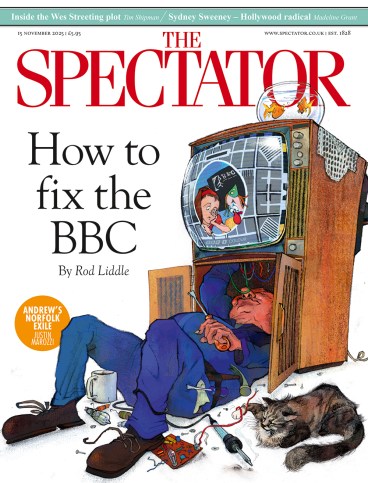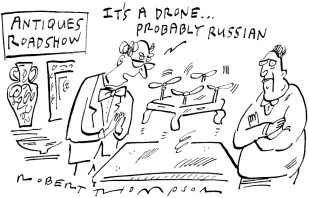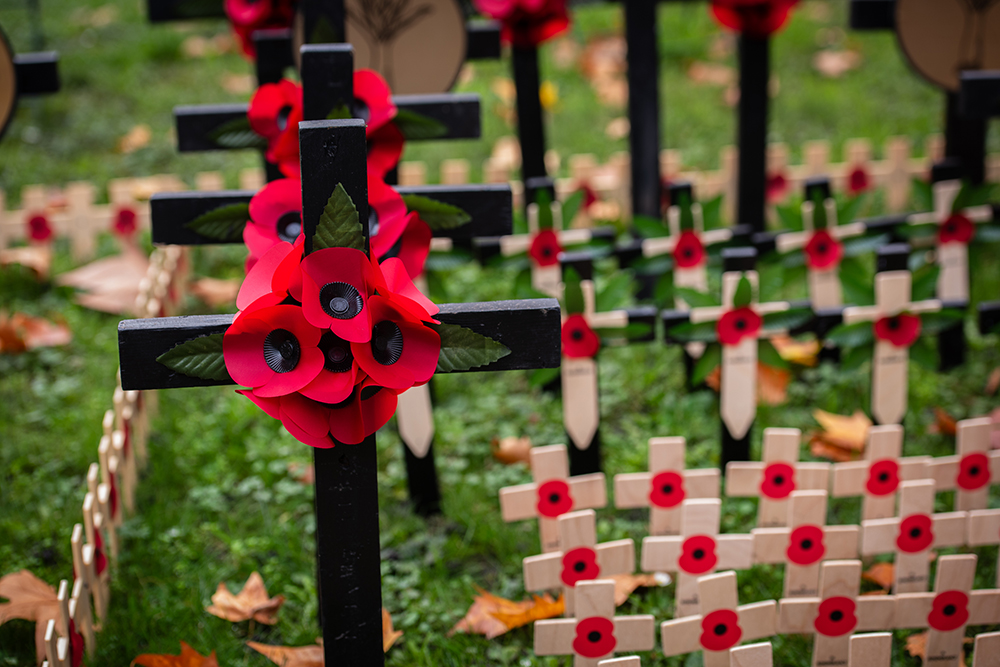
Solemn, moving, serious: British. As silence fell and the wreaths were lain, even teenagers joined in the mood of reverence. Suddenly it did not matter what the gossip columns were saying about Andrew Mountbatten Windsor, or what latest mischief might arise from the Duchess of Sussex. The great ship of state and of history sailed on serenely. The sacrifices of a previous generation were saluted. They had paid the price for their Britishness. We, their successors, unworthy as we might feel, could at least salute them, especially as good bottles were about to be opened, to toast the fallen.
Yet there was a problem far more important than princely indiscretions. We British won the war. Since then, we have defended the peace. Hard fighting is a tough business. The battlefield cannot be conducted by some military equivalent of the Queensberry rules. Mistakes will be made. Hard-pressed men, perhaps trying to rescue desperately wounded colleagues, might open fire when it may not have been strictly necessary to do so. That might be especially true of men from the SAS, who often found themselves in harm’s way. So what: we ought to defer to the judgment of brave men in battle, there to protect us all.
Good bottles were about to be opened, to toast the fallen
That is not good enough for the lawyers and especially for so-called human rights lawyers. Anyone who is in favour of human rights – as we all ought to be – should acknowledge that the ultimate defence of our lives and our freedoms does not depend on lawyers and law courts. It depends on hard, trained young men, by no means well-paid, yet ready when it comes to it to die for King and Country.
Some shyster lawyers seem determined to persecute retired members of the SAS. A number of them regret the fact that the SAS helped to defeat the IRA. Others just hate their own country and resent its successes. Equally, so many of them are working pro bono. They will be well paid for undermining their country’s defences and its real human rights. This is a disgrace.
There is an obvious danger. You are a young officer, leading a small detachment into dangerous country. It is almost certain that you will have to deploy lethal force to secure your objective, and to protect your men, but how will this look if your decision is raked over months later by lawyers who know nothing about war and who may well care less?
There are reports that youngsters who might have been ready to join the army are reluctant to do so. They would be prepared to deal with warfare: less so with lawfare. Some are reluctant to volunteer to serve a country which does not seem to value them.
I hear no sound of swords being beaten into ploughshares. In peacetime, the world has rarely seemed more dangerous. This is not the time to spurn the service of those who are ready to step forward to defend their country. They must be helped to win a peacetime battle, to protect human rights from malevolent lawyers.

Indignation gradually gave way to lunch. Roast beef and claret: there is nothing the matter with simple fare. The claret reached the apogee: a Lynch-Bages 2005. Although no one told the youngsters that they were about to be given a treat, they immediately started complimenting their father: ‘This stuff isn’t half bad, Dad.’
Dad was happy to concur, and to conclude that he had not brought his children up that badly. This conclusion was reaffirmed when one son declared that he was still thinking of joining the army.
The young scattered. The grown-ups finished with some Louis XIII, a subject to which I shall enthusiastically return. We ended by remembering the cause for which the heroes died, and expressing thanks for the civilisation which they preserved.







Comments